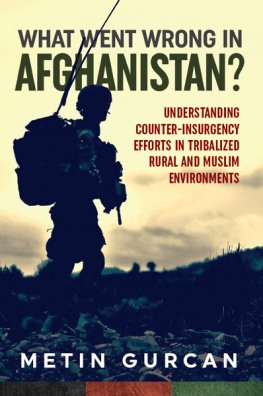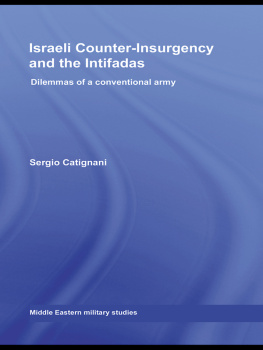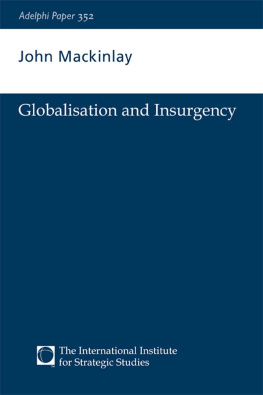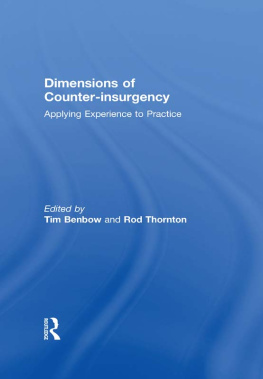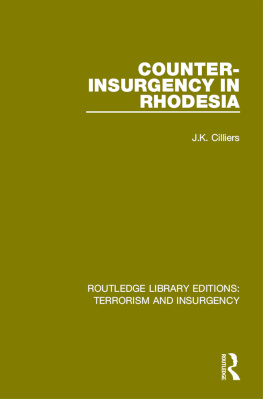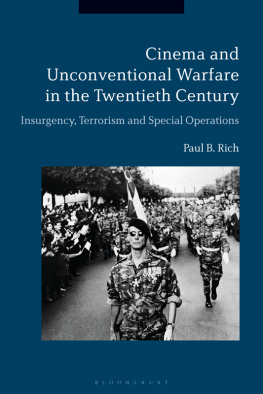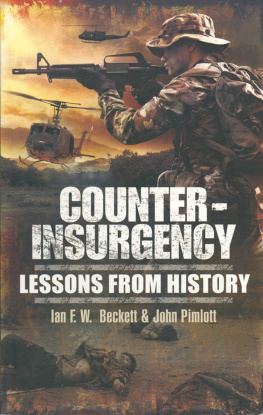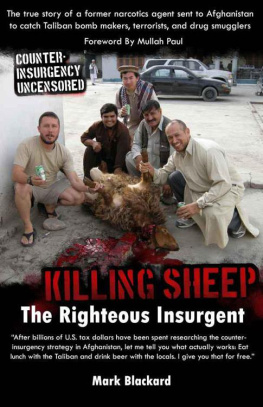Contents
Guide
Pagebreaks of the print version
Since 20 December 2001 the date which marked the authorization of the International Security Assistance Force (ISAF) to assist the Afghan Government hundreds of thousands of coalition soldiers from around 50 different states have physically been and served in Afghanistan. Roughly 20 rotation periods have been experienced; billions of US dollars have been spent; and almost 3,500 coalition soldiers and 7,400 Afghani security personnel have fallen for Afghanistan. In this badly-managed success story, the true determiner of both tactical outcomes on the ground and strategic results was always the tribal and rural parts of Muslim-populated Afghanistan.
Although there has emerged a vast literature on counterinsurgency theories and tactics, we still lack reliable information about the motivations and aspirations of the residents of Tribalized Rural Muslim Environments (TRMEs) that make up most of Afghanistan. The aim of this book is to describe some on-the-ground problems of counterinsurgency (COIN) efforts in TRMEs specifically in rural Afghanistan and then to propose how these efforts might be improved. Along the way, it will be necessary to challenge many current assumptions about the conduct of counterinsurgency in Afghanistan. Generally, this book will show how counterinsurgency succeeds or fails at the local level (at the level of tactical decisions by small-unit leaders) and that these decisions cannot be successful without understanding the culture and perspective of those who live in TRMEs.
Although engaging issues of culture, the author is not an anthropologist or an academic of any kind. He is a Muslim who spent his childhood in a TRME a remote village in Turkey and he offers his observations on the basis of 15 years worth of field experience as a Turkish Special Forces officer serving in rural Iraq, Turkey, Kazakhstan, Kyrgyzstan and Afghanistan. Cultures in these areas are not the same, but there are sufficient similarities to suggest some overall characteristics of TRMEs and some general problems of COIN efforts in these environments.
In summary, this book not only challenges some of the fundamentals of traditional counterinsurgency wisdom and emphasizes the importance of the tactical level a rarely-studied field from the COIN perspective but also blends the first-hand field experiences of the author with deep analyses. In this sense, it is not solely an autobiography, but something much more.
After graduating from the Turkish War Academy in 1998, Metin Gurcan joined the Turkish Special Forces and served in Afghanistan, Kazakhstan, Kyrgyzstan, Kosovo and Iraq as a military adviser/liaison officer from 2000-2008.
In 2008-2010, he got his MA degree in Security Studies from the US Naval Postgraduate School, Monterey. In 2010-2014, he worked as an analyst officer in the Turkish General Staff.
In 2014, Gurcan worked as a visiting research fellow at Changing Character of War (CCW), Oxford University, on counterinsurgency efforts in tribal and Muslim settings. After resigning from the military, Gurcan got his PhD at Bilkent University/Ankara in April 2016 with a dissertation which was titled Opening the Blackbox: The Transformation of the Turkish Military. Gurcan has another forthcoming book about the Gallipoli Campaign to be published in August 2016. He has been published extensively in Turkish and foreign academic journals about the changing nature of warfare, terrorism, Turkish civil-military relations, military history and Turkish foreign policy.
Helion & Company Limited
26 Willow Road
Solihull
West Midlands
B91 1UE
England
Tel. 0121 705 3393
Fax 0121 711 4075
Email:
Website: www.helion.co.uk
Twitter: @helionbooks
Visit our blog http://blog.helion.co.uk/
Published by Helion & Company 2016
Designed and typeset by Mach 3 Solutions Ltd (www.mach3solutions.co.uk)
Cover designed by Paul Hewitt, Battlefield Design (www.battlefield-design.co.uk)
Printed by Lightning Source Limited, Milton Keynes, Buckinghamshire
Text Metin Gurcan 2016
Illustrations Metin Gurcan 2016
Maps as individually credited
Cover: Public domain image
ISBN 978-1-911096-00-9
eISBN 978-1-911096-84-9
British Library Cataloguing-in-Publication Data.
A catalogue record for this book is available from the British Library.
All rights reserved. No part of this publication may be reproduced, stored in a retrieval system, or transmitted, in any form, or by any means, electronic, mechanical, photocopying, recording or otherwise, without the express written consent of Helion & Company Limited.
For details of other military history titles published by Helion & Company Limited contact the above address, or visit our website: http://www.helion.co.uk
We always welcome receiving book proposals from prospective authors.
To Senem
Contents
List of Illustrations
Figures
Maps
Foreword
When Metin Gurcan first came to visit me, he brought his laptop and showed a video to me and my three sons. On the screen several soldiers in camouflage uniforms were holding up a large paper target with a chest-sized black rectangle on it. Gurcan was standing with them, and talking with them. Then he paced away from the soldiers perhaps 10 meters distance. He stopped, turned around to face the soldiers, raised his pistol and fired several rounds at the target they were holding. Then he turned again, facing away from the soldiers, bent down from the waist and fired several more rounds at the target, firing upside down between his legs. Trust fire is what he called this ritual, a means of building trust among soldiers: trust in their skills, trust in one another.
I recall thinking that day that our visitor was an unusual person, living between action and scholarship. His research was also unusual. From his experience soldiering in Afghanistan he had come to a view of Western counterinsurgency operations that was unlike anything I had seen before.
Most analyses of Afghanistan portray three actors locked in conflict: the Taliban, a fundamentalist Islamic group that gave refuge to al-Qaeda; the US and NATO Coalition Forces fighting Taliban and al-Qaeda; and the warlords, such as Ismail Khan and Abdul Rashid Dostum, who joined with Coalition Forces against the Taliban.
The unhappy history of these three actors is complex but can be briefly summarized. Warlords were empowered by the US and Pakistan to fight the Russians in Afghanistan; were suppressed by the Taliban after the Russians departed; were resurrected by the US to fight the Taliban after the 9/11 attacks; and are currently resisting centralization of power in Kabul even as they prepare to face the Taliban again when US Forces depart Afghanistan.
In this history, inhabitants of the tribalized, rural, Muslim environment of the conflict (Gurcans TRME) are a passive and suffering background. Local people are exploited, threatened, and killed by the Taliban, by Coalition Forces, and by warlords. They seek security, and counterinsurgency doctrine says that victory will in the end go to whichever of the three strong actors can best provide physical security.
In this book, Gurcan offers a different view. The locals are not passive victims but active agents trying to survive and prosper in the conflicts they cannot avoid. Much of the violence in Afghanistan, and particularly the location and targeting of violence, is determined by local people trying to protect their income, their honor, and their pastures. As Gurcan makes clear, illiterate does not mean stupid. Local people learn how to advance their own interests in the interstices of conflict between giants. Often enough, in a land where honor depends on violence, local interests lead to violence.

